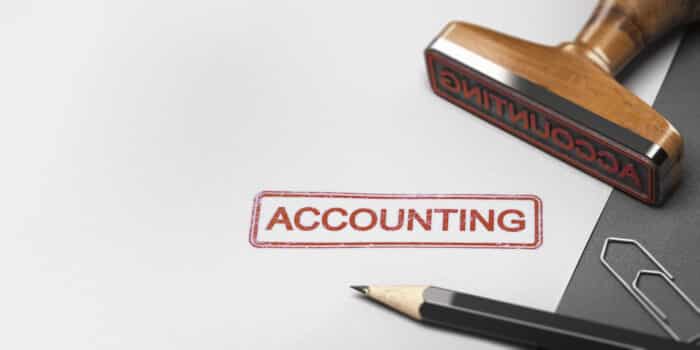Love Playing with Numbers? That’s great! Because a career in accounting allows you exactly that – to play with large numbers and the puzzles associated with them.
The career is highly rewarding and provides ultimate job security and stability. Also, it makes you eligible to go solo and start your business, which makes it a luxurious option.
All you need to get hold of this luxurious career is a Bachelor’s degree in accounting. A bachelor of science in accounting degree is the most sought-after by employers and the most trusted degree level by students, as well. So, to be at par with the competition you must need a bachelor’s degree.
To help you out with the research part, here we are, with this article, where we will be discussing in-depth about the bachelor’s degree in accounting, the admission requirements, course curricula, how can you get one, pros and cons, career opportunities, and much more.
Let’s begin –
Bachelor’s Degree in Accounting
Accounting is a procedure where professionals record, analyze, and interpret financial transactions and data within a business or company.
In simple words, it is all about managing and understanding the financial health of businesses, organizations, and even individuals.
You can work for businesses, nonprofit organizations, government agencies, individual financial management firms, or even as self-employed. This makes it a luxurious career option, for the wide array of career options it provides.
Recommended Schools
Let’s dive deeper into the bachelor’s degree in accounting –
Course Overview
| Course Credits | 120 |
| Course Duration | 4 years |
| Course Cost | $20,000 to $40,000 |
| Annual Average Salary | $77,250 |
Admission Requirements
To get admission to a Bachelor’s degree in accounting you need to meet certain standards and possess certain requirements. The standard admission requirements are as follows –
- A high school diploma or GED or Associate Degree
- GPA of 2.5 or higher
- SAT or ACT scores
What will you Learn?
After you enroll in a bachelor’s degree program, irrespective of the school, you will begin with a general education curriculum. Post-completion of the curricula the focus shifts to the core curricula thus enabling you to learn specialized accounting courses.
The specialized courses may vary per school but are more-or-less the same. Here are the standard course curricula besides general courses –
- Accounting Information Systems
- Auditing
- Cost Accounting
- Ethics in Accounting
- Financial Accounting
- Financial Reporting
- International Accounting
- Managerial Accounting
- Financial Statement Analysis
- Fundamentals of Tax
Concentrations
During the degree program, you might get to choose any concentration according to your interests and career goals. These concentrations will help you get direction toward achieving your career.
Say, you aspire to be a Financial Accountant, then you may choose a concentration in Financial Accounting. Below are some common concentrations –
- Auditing
- Financial Accounting
- Managerial Accounting
- Forensic Accounting
* Some programs allow picking a concentration, while some require you to possess a Bachelor’s degree first.
What is the difference between a BS, BBA, BAcc, or BA in Accounting?
A bachelor’s degree in accounting could be of many names like BS – a bachelor of science in accounting, BA – a bachelor’s of arts in accounting, BBA – a bachelor in business administration, and BAcc – a bachelor of accounting.
Not sure which one to take? Well, we will help you out.
Although the bachelor’s program does feature almost the same course but has some variations in some focus subjects. These variations go on to decide the name of the degree.
The BS degrees typically concentrate on technical and quantitative skills. This means you need to study maths and science. This degree is believed to equip graduates better, with the proper knowledge to tackle more complex problems and take on leadership roles.
The BA degree programs emphasize more on the theory and qualitative skills. This program entirely focuses on accounting. But you’ll also learn about finance, and international business, writing business plans, etc.
Same as BA degrees the BAcc programs also focus mainly on accounting.
The BBA degrees generally include more extensive coverage of business administration and management with a concentration in accounting. So, this could not be referred to as a perfect accounting degree, but you could opt for an accounting concentration and plan your career accordingly.
So, now you know about the degree option that you need to choose depending on your career goal and interest. Like, if you hate math, you could choose BA and still get a degree in accounting. Now, let’s discuss, how can you get one –
How to get a Bachelor’s Degree in Accounting?
Do you aspire to start a career in accounting? You can do that by getting hold of a Bachelor’s degree in accounting. But how? We are going to discuss that in this step-to-step guide.
Step 1 – Research Schools
You begin your journey by researching the schools that provide the best BA or BS degree in accounting, depending on your career goals, location, tuition costs, and any other personal preferences.
Step 2 – Check Admission Requirements
Your choice of school would have different admission requirements, so review it closely. Although, most of the schools have common admission requirements, do check the above-mentioned points.
Step 3 – Apply for the School
Now, you need to fill in the application, submit it with all the required details, and attach the required materials. Be sure to meet deadlines.
Step 4 – Complete the Coursework
A bachelor’s degree would have 120 credits and takes around 4 years to complete for full-time students. Check the above-mentioned course curricula, and prepare accordingly.
Also, you might need to complete the assignments, and clear all the semester exams to demonstrate your understanding of the subject and be eligible to acquire the degree.
Step 5 – Get the Degree
So, considering you have appeared and successfully passed the exam, you get your bachelor’s degree. Considering your program choice, you will receive a BS, BA, BBA, or BAcc degree in accounting.
Step 6 – Consider Internships or Externships
Post-completion of the program or during it, if you get some hands-on experience opportunity, you should try it. Carrying out those attentively can provide real-world exposure and enhance your resume making you job-ready.
Step 7 – Explore Career Opportunities
Now, you have some experience, and an accounting bachelor’s degree in hand, so you can explore various career opportunities in accounting, finance, auditing, and related fields.
You may get some mid-level roles as an Accountant, or even if you get some entry-level roles like an Accountant Clerk, join them without any hesitation. Your career will grow with each passing day.
Accounting Bachelor Degree Online
Course Duration – 2 to 4 years
Course Credits – 120
Course Cost – $15,820 to $31,640 (depends on your time commitment)
An online bachelor’s degree in accounting is a program offered by universities and colleges that allows students to earn a bachelor’s degree in accounting online. This degree equips students with a strong foundation in accounting principles, financial analysis, taxation, and business ethics.
Most of the online programs offer a BS in accounting. So, if you want to opt for an accounting bachelor’s through online programs do check with your program provider.
More On -> Online Accounting Degree
Recommended Schools
Can I become a CPA after earning a Bachelor’s in Accounting?
Not all, but there could be someone wondering – if I could become a CPA post acquiring a bachelor’s degree. There is no absolute answer to this, but you need to read the below paras carefully.
To become a CPA, you should have 150 college credits. Only if you have it, you become eligible for the CPA licensure exam.
But, since you know that most of the bachelor’s degree programs, be it BS or BA, provide only 120 credits. This would mean that you need to acquire a Master’s degree which has 30-36 credits and complete the 150 credits quota. This is a way.
Aren’t there any easier ones? Oh, there is one. With the changing times, everything is possible.
So, if you wish to become a CPA then there is one such bachelor’s program that allows you to be eligible for that too. They have combined the course curricula and extended the credits making it 150 and would require 1 extra year i.e., a total of 5 years, to fulfill the CPA requirements.
With this integrated bachelor’s master’s program, you can become eligible for CPA licensure, or else, you need to walk the traditional route and enroll in a master’s post your bachelor’s.
The moral of the story – choose your programs wisely considering your career goal.
Pros and Cons of a Bachelor’s Degree in Accounting
The Bachelor’s degree in accounting is the most popular degree level among students, and it is the most sought-after degree by employers as well.
But as with any other degree, there are some advantages and disadvantages associated with it. Let’s discuss them, starting with the pros first.
The Pros of a Bachelor’s Degree in Accounting
There are many advantages to acquiring an accounting degree. Let’s discuss some –
High Demand
Irrespective of the size of the business and across industries, they require accounting professionals since it is a fundamental aspect of every business, so accountants are in demand across industries.
As per the BLS, the projected employment growth rate for accountants and auditors is 6% for this decade. This means that there will be almost 136,400 job openings every year.
High Earning Potential
Accounting professionals often enjoy competitive salaries, and as you gain experience and expertise, your earning potential increases.
As per the 2021 data by BLS, the annual average salary of accountants is $ $77,250, with the highest 10 percent earning more than $128,970 annually. This will only increase after you gain sufficient experience and expertise in your area of work.
Diverse Career Opportunities
A bachelor’s degree in accounting qualifies you for a wide range of mid and entry-level accounting and finance positions.
The bachelor’s degree opens doors to a wide range of job opportunities making you eligible to work for the government, public, businesses, or even as self-employed.
The degree provides flexibility, allowing you to pursue work in a variety of roles like public accounting, corporate finance, taxation, auditing, forensic accounting, and more.
Entrepreneurial Skills
With a bachelor’s degree, you have developed an understanding of financial aspects and that helps you to plan or start and manage your own business.
The skills and experience that you have honed during the years, will come into play once you decide to kick-start your own business.
Also, studying accounting exposes you to a network of professionals, professors, and alumni, opening doors to valuable connections, which can again help you in your entrepreneurial goals.
The Cons of a Bachelor’s Degree in Accounting
Here are some disadvantages of a bachelor’s degree in accounting –
Rigorous Coursework
Getting into accounting requires you to go through rigorous coursework and it can be challenging. A bachelor’s degree requires 120 credit hours of learning, this might be too much for someone especially if they are not naturally inclined towards numbers.
This tends to students dropping out of college. Almost, 54% of students drop out of college according to a stat.
Might require further Education
You can still get entry or mid-level positions but to gain advanced or higher-level roles you need prolonged education, like a master’s, or for at least 5 to 6 years. This could not be suitable for many and they opt out of college.
Certification Requirements are strenuous
If you aspire to become a CPA or CMA, you require additional education, prepare for the exams, and meet certain work experience. This can get strenuous at times. However, not all will be affected by it, and you too can avoid it by planning well.
Read More:
-> Is an Accounting Degree Worth it?
-> Requirements for Accounting Degree
What jobs can you get with an Accounting Bachelor’s Degree?
You become eligible for entry or mid-level roles in the field of accounting or related fields with a bachelor’s degree in accounting. Accounting is a diverse field with various specializations, including financial accounting, management accounting, tax accounting, auditing, forensic accounting, and more.
Here are some careers that you could pursue with their average annual salary data –
Auditor – Annual average salary: $77,250
Accountant – Annual average salary: $77,250
Cost Accountant – Annual average salary: $75456
Management Accountant – Annual average salary: $75432
Tax Accountant – Annual average salary: $70089
Credit Manager – Annual average salary: $70068
Cash Manager – Annual average salary: $78628
Budget Analyst – Annual average salary: $79,940
Financial Analyst – Annual average salary: $85,660
Personal Financial Advisor – Annual average salary: $88,890
Forensic Accountant – Annual average salary: $93,527
Actuary – Annual average salary: $105,900
Financial Manager – Annual average salary: $131,710
More on –> What Jobs Can You Get with an Accounting Degree?
FAQs – Bachelor’s Degree in Accounting
How Long does it take to get a Bachelor’s Degree in Accounting?
The course duration of a bachelor’s degree in accounting depends on the format of your education. If you have chosen the traditional way of learning, on-campus programs then it takes around 4 years to complete. Depending on your pace of learning, it might even take 5.
But, if you have chosen the online way of learning, then it would take you around 2 years to complete if you put in extra effort and dedicate full time. If not, it would also take around 4 years to complete.
Whatever the learning methods are, ultimately, the course duration will depend on your learning pace, effort, and ability to clear the semester exams.
More On -> How Long Does It Take to Get an Accounting Degree?
How much does it Cost to get a Bachelor’s Degree in Accounting?
The course costs of a bachelor’s degree in accounting depend on the format of your education. If you have enrolled in a college or university full-time, on-campus, then you might be required to spend around $40,000 for tuition costs alone. With it, there are other associated costs as well, like traveling, fuel, parking, books, and other miscellaneous expenses.
Now, if you have enrolled in an online school, then it might require you to spend around $15,000 to $30,000 depending on the school.
To further make the course cheaper, you can opt for scholarships and aids, for both traditional and online methods.
What is the job outlook for accountants in 2030?
Irrespective of the size of the business and across industries, they require accounting professionals since it is a fundamental aspect of every business, so accountants are in demand across industries.
As per the BLS, the projected employment growth rate for accountants and auditors is 6% for this decade. This means that there will be almost 136,400 job openings every year.
How old are most accountants?
The average age of an accountant is 43 years.
Are all accountants female? What percentage of accountants are males?
Interestingly, there are around 1,099,751 accountants that are working in the USA. Out of those a whopping 61.8% are women, while only 38.2% of accountants are men.
Recommended Schools
Related Articles
-
How to Be Successful in College in 2022 – 7 Simple Tips to Succeed
-
How Do Scholarships Work? Read This First…Truth is Shocking
-
7 Best College Majors 2024: What Should I Major In?
-
How to Choose a College – 10 Things You Must Consider in 2024
-
Why Go to College? Top 13 Benefits for Adult Students in 2022
-
Top 5 Best Alternatives to Community College for 2024











